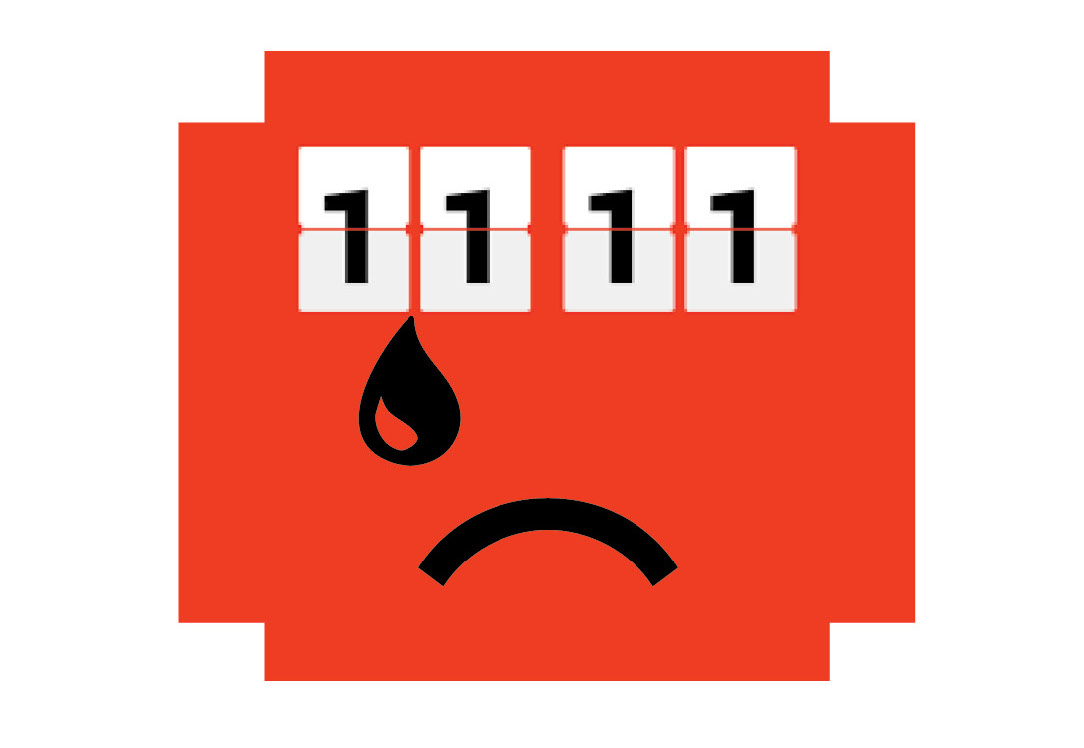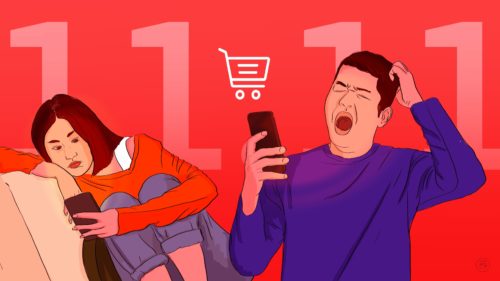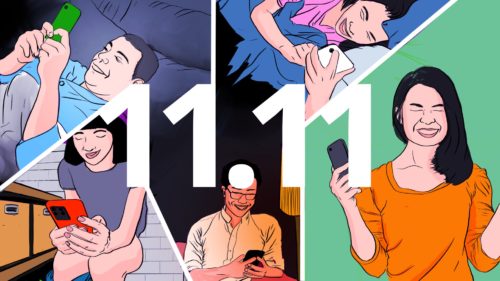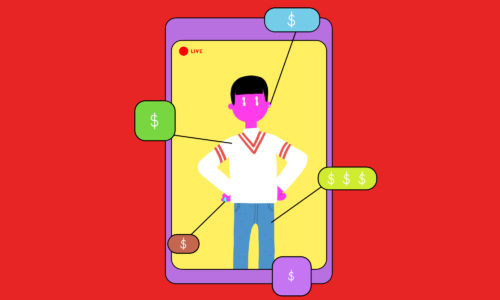Bare Branches

What began as an impromptu attempt at self-mockery has turned into the world’s largest shopping day. But Singles Day in China, “celebrated” every November 11, has forgotten its origins, leaving singles in the lurch.
A version of this article appears on LARB China.

Every November 11, while Brits wear poppies to remember the dead of WWI, the China news cycle rotates back to Singles Day, or “Double Eleven,” the online shopping bonanza that’s Black Friday on acid, pioneered by ecommerce company Alibaba. Last year, more than $30 billion worth of goods were sold in 24 hours, and the early hours of this year’s discounts are already 32 percent higher.
But Singles Day wasn’t always about sales. The only figure worth crunching when it started was the loneliest number: one.
In 1993, the story goes, four Nanjing University students were slouching on their dorm bunk beds, slurping instant noodles, drinking beer, chain-smoking, and complaining that the ladies weren’t falling over each other to get at them. They were “bare branches,” they grumbled, using a word for single men, 光棍 guānggùn, that still carried stigma. “From today,” one of them said, pleased by the recurring bare branch of the number one in that day’s date, “November 11th will be called Singles Day.”
Whether or not there’s any truth to this origin myth, the idea stuck. What started as an in-joke became a self-mocking campus tradition, embraced by girlfriendless students who were fed up with sleeping alone while lovebirds around them rubbed it in. Going home for Chinese New Year, their parents would repeatedly ask them when they would find a partner; on Singles Day, they could cast off the pressure and celebrate their singlehood. When those first students graduated and found work, the concept spread. Soon it became an excuse for old friends to get together once a year to talk about jobs, property prices, and why the women still weren’t biting.
Little by little, people came to see the mock-festival as an opportunity to try and shed their single status. Speed-dating events sprouted in cities. Bars and clubs advertised special deals for the night. Singles Day became the chance to tell a girl you had a crush on her, or to propose to your partner. The number of couples registering to be married leapt every November 11. It was called 脱光 tuōguāng, “shedding your bare branch-ness,” but the phrase has a double entendre of “strip naked” — which only partially explains why some singles marked the day with the more eccentric tradition of going for a group run, buck naked.
One-year flashmobs emerged on a Beijing city bus route marked No. 11, organized on bulletin boards online. Participants were instructed to wear a turban and carry a stick, say, “The weather is really nice” to anyone else in a turban, and stay on until the end of the line, to the bewilderment of regular passengers. Fans of Japanese manga, adopting a more sinister joke from a comic book, called it “barbecue day” and suggested that all couples should be burnt. Singles Day even had its own special food: four deep-fried crullers, or 油条 yóutiáo, a breakfast snack, to represent the four ones in the date, with a single dumpling in the middle for the dot: 11.11.
The festival of singlehood struck a chord with young Chinese, both men and women, who resented the traditional pressure to find a spouse in their 20s. (They are also mostly single in the other meaning of the word, given the one-child family planning policy that began in 1980 and only ended in 2016.) In China, there were not one but two Valentine’s days: a Chinese festival for lovers in the summer, 七夕 qīxì, as well as the newly popular Western import in February. Yet this was their day — invented by the young and for the young.
But not for long.
In the late 2000s, internet retail companies started to take an interest in Singles Day. November was a seasonal slump in sales, situated as it was between Mid-Autumn Festival and Chinese New Year, and offline business had shown that the day was a useful sales gimmick. In 2009, Taobao, the eBay-like online store comprising individual sellers, trialed a mass discount with participating retailers. The next year they marketed it hard, selling almost a billion yuan’s worth of discounted goods in 24 hours.
In 2011, the festival fell on a triple eleven — 11.11.11 — and was promoted by Taobao as “Super Singles Day.” Tens of millions of shoppers, single or not, waited for the stroke of midnight to snap up the best deals. There were teddy bears, sexy underwear, wedding gowns, “bare branch” IDs mocked up to look like marriage documents. But there were also discounts on everything else that had nothing to do with dating: mobile phone cases, winter thermals, rice cookers, gloves and scarves. Every time “Double Eleven” day came around, Taobao shifted more goods: three billion yuan’s worth, nine billion, 50 billion, 90 billion. Soon the origins of the day were forgotten in the shopping frenzy. November 11 is now associated, almost entirely, with online sales.
All the more’s a pity: China is a difficult place to be young and single. Chinese parents, born in a different era, pressure their children to marry early for security. Women over the age of 27 are cruelly dubbed “leftover women” by the media, described in one 2011 editorial as “old, like yellowed pearls.” Some moms and dads are so desperate to find spouses for their offspring that they join marriage markets in the public parks of Beijing and Shanghai, advertising on their children’s behalf in the hope that other parents will think their son or daughter a good match. These unwanted blind dates are generally ignored by the children, who still struggle to meet new people in a conservative culture that frowns on bar pickups. Most rely on introductions from friends and workmates, or karaoke fate.
Speed dating nights still happen in Chinese cities every November 11, for those looking to appraise each potential marriage partner in eight minutes or less. In my early, single days in Beijing, I went to one such speed dating event at a singles’ club — purely for research, naturally. The group games, designed as social lubrication for the shy, resembled something closer to a children’s party. The boys and girls formed two concentric circles, stopping when the host told them to, like musical chairs, to have a brief conversation with the person they were facing (often focusing on marriage plans and income). In the simplest game, potential partners held various ends of a tangle of red strings, ducking and contorting to follow theirs until they found which other half they were connected to (not quite no strings attached).
Attitudes to dating — or remaining “self-partnered” — are changing, especially in the cities and among younger generations. Dating and chat apps with the geolocation function let anyone see who’s nearby, enabling casual hookups without social stigma. Beijing also has a nascent pick-up artist scene. I was a fly on the wall at one PUA group, called Huai Nanhai or “Bad Boys,” as they coached shy single men lacking in confidence to land a date, most with the goal of finding a spouse rather than a hook-up. The guides chose what they wore and told them what to say and do (magic tricks is a common ice-breaker). A more devious trick they taught is to rent out magnum-sized bottles of champagne, displaying them at their table in a club, showing off fake wealth without ever opening — and thus paying for — the bottles.
For those who prefer to keep their romantic life purely digital, live-streaming websites and apps provide countless channels of women on demand, who sing and dance in return for digital gifts (although provocative behavior, such as eating bananas, has been banned). Meanwhile, a Microsoft chatbot called “Xiaoice” has become an unlikely virtual girlfriend to millions, without any of the material demands that have kept some men single in the first place. And the rising popularity of sex dolls in China is perhaps not a surprise given the country’s gender imbalance, with a peak of 118 boys born for every 100 girls in the ’80s and ’90s, when the current generation of bachelors was born.
In these cases, technology has widened the horizon for finding a soulmate — or substitute — just as social attitudes are shifting along generational lines to a dating culture more closely resembling that of the West. Yet for those disappointed that Singles Day has been hijacked by online retailers, there’s always shopping therapy.





